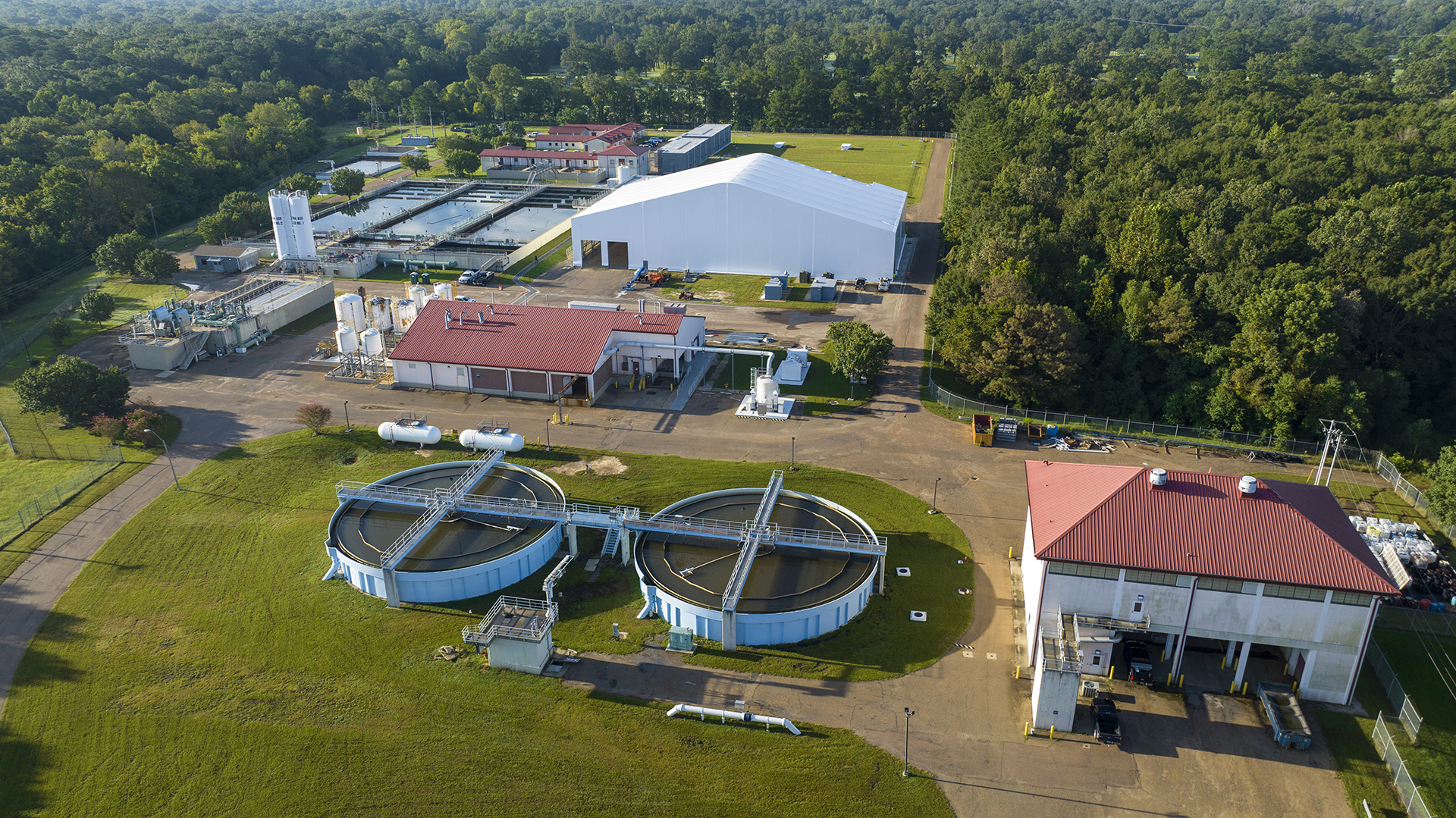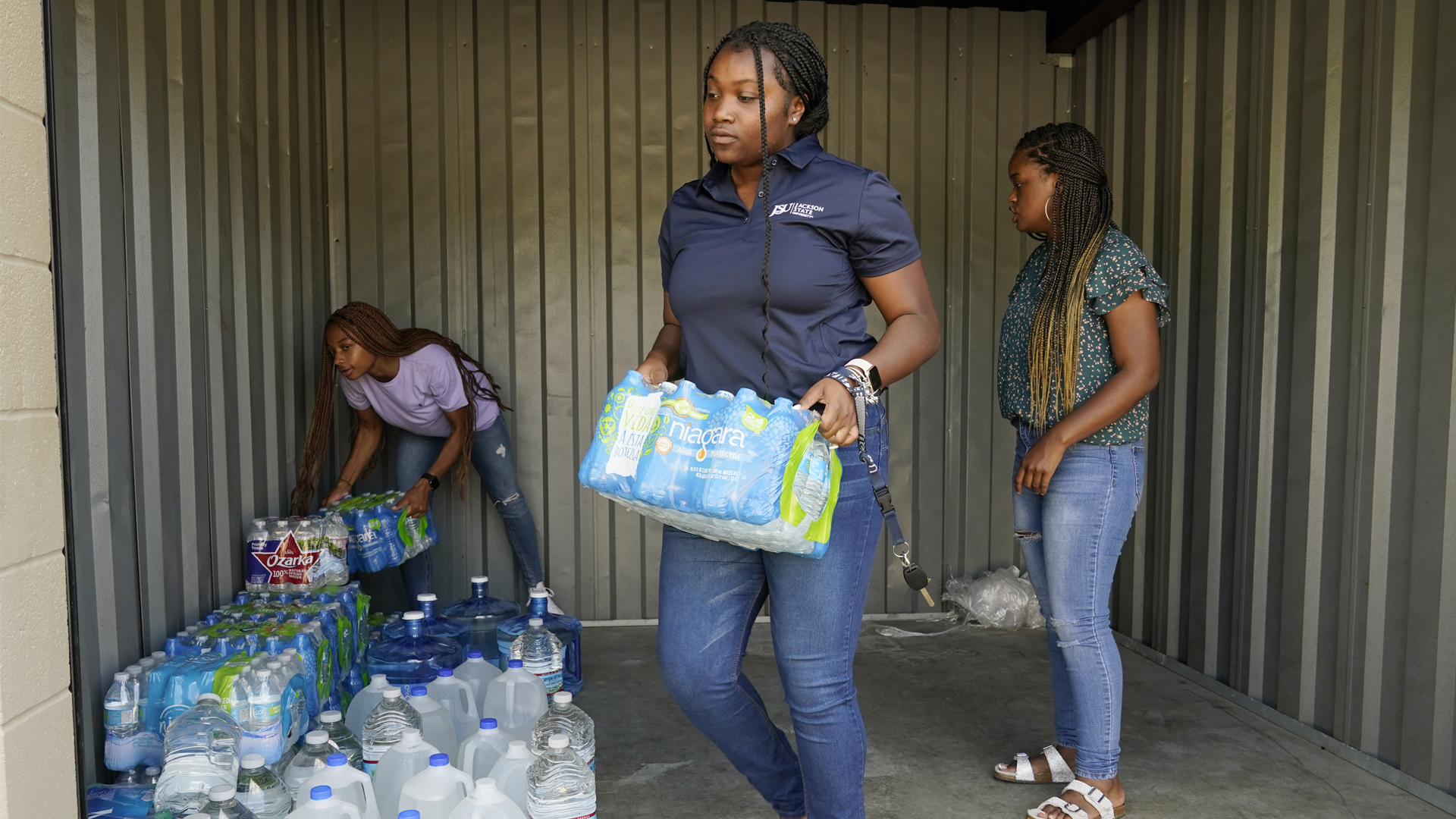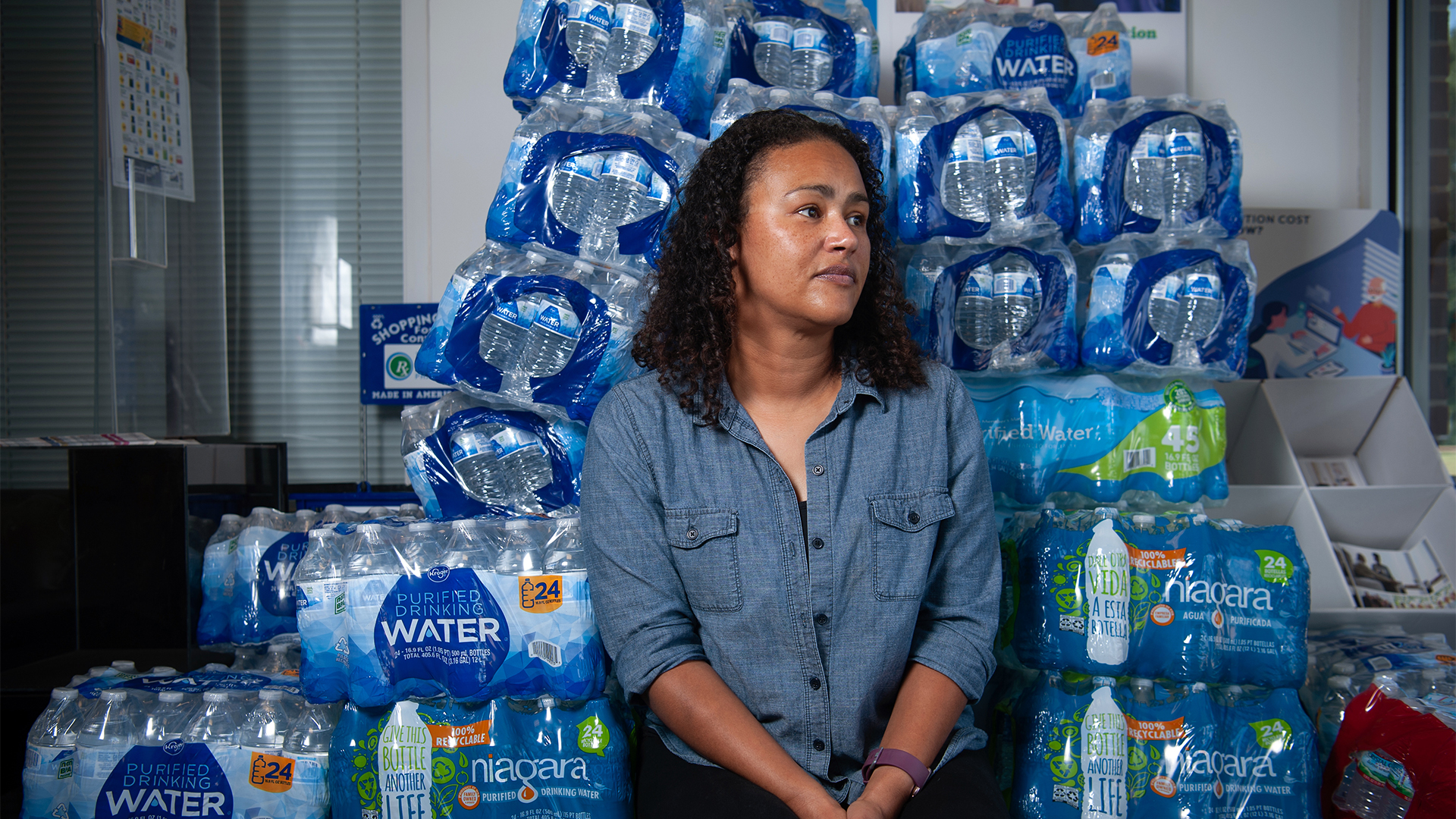Mississippi city’s water problems stem from generations of neglect
On Aug. 29, 2022, the largest water treatment plant in Jackson, Mississippi, failed – leaving 160,000 people, along with hospitals, fire stations and schools, without safe drinking water. In many cases, these communities had no water service at all.
The catastrophe in the state’s capital, where 80% of residents are Black and about 25% live in poverty, was not the result of a natural disaster but rather generations of neglect by white politicians and policymakers.
The year before, in fact, U.S. Environmental Protection Agency Administrator Michael S. Regan presaged the crisis, citing the water treatment plant as an example of what his agency called “long-standing environmental justice concerns in historically marginalized communities.”
This crisis continues today, as Mississippi’s governor and white-dominated Legislature continue to block funds necessary to repair the system. Here is a timeline of events:
1914
Fewell Plant is built and still operates today.
1963
Construction ends for the Ross Barnett Reservoir, Jackson’s largest source of drinking water. When the reservoir gets too high, though, water discharges into the Pearl River, which flows through Jackson.
1970s
White flight: More than 11,000 white families leave Jackson to avoid integrated schools. White Jackson families pull 5,000 children from local schools in 1970.
Federal spending on water utilities peaks at more than 30% of the total long-term investments in the late 1970s. In 2017, the federal government’s spending fell to just 4% of capital spending in water and wastewater infrastructure, leaving state governments and individual water utilities to close the funding gap and bear the costs of water infrastructure needs. As federal funding for municipal water systems dwindles, Jackson also has a lower tax base.
1985
Jackson prepares its original Water Master Plan, outlining recommended maintenance and repairs for its water infrastructure. The plan will be updated in 1997 and again in 2012.
1993
O.B. Curtis Plant, the city’s primary water plant, is built near the Ross Barnett Reservoir.
2010
A storm causes hundreds of water mains to burst, leaving residents without water for weeks.
2012
An American Water Works Association journal finds Jackson’s pipeline repair needs are more than nine times higher than the national average for similarly sized systems.
Jackson is put under a federal consent decree for violating the Clean Water Act. The EPA finds that Jackson has had at least 2,300 unauthorized sanitary sewer overflows in the past five years. A 2012 consent decree orders the city to pay a civil penalty of $437,916 and outlines remedial actions for its sewer system, including a phased approach for evaluation and rehabilitation.
2013
The Jackson Master Plan is updated to reflect nearly $600 million in needed infrastructure updates and repairs. The plan also finds that:
More than 112 miles of water pipes are still unlined cast iron. In many cases, the eroding pipes are a century old.
The distribution system has been degrading since 1997 and shows obvious signs of system failure.
Unaccounted-for water has increased from 19% in 1985 to 26% in 2012.
More than 97 miles of water mains running beneath Jackson are less than 6 inches in diameter, causing more than 40% of all water main breaks.
2014
A winter storm results in water outages.
2018
Another freeze causes pipes to burst and leaves residents without water.
2019
More than 3 billion gallons of sewage is released into the Pearl River. Jackson residents are told to avoid water contact activities such as swimming, wading and fishing.
2020
Record rainfall in the first three months overflows the city’s sewage system and dumps nearly a half-billion gallons of raw sewage and 5.7 billion gallons of minimally treated sewage into the Pearl River.
An EPA report finds that Jackson’s water distribution system has numerous leaks and line breaks, with crews reportedly repairing five or six each day. The loss of pressure from these incidents requires the city to issue boil water notices (BWNs); more than 750 BWNs have been issued since 2016.
In June, Gov. Tate Reeves vetoes a bipartisan bill that would have helped Jackson use a flexible payment plans system to collect overdue payments and fund the water system.
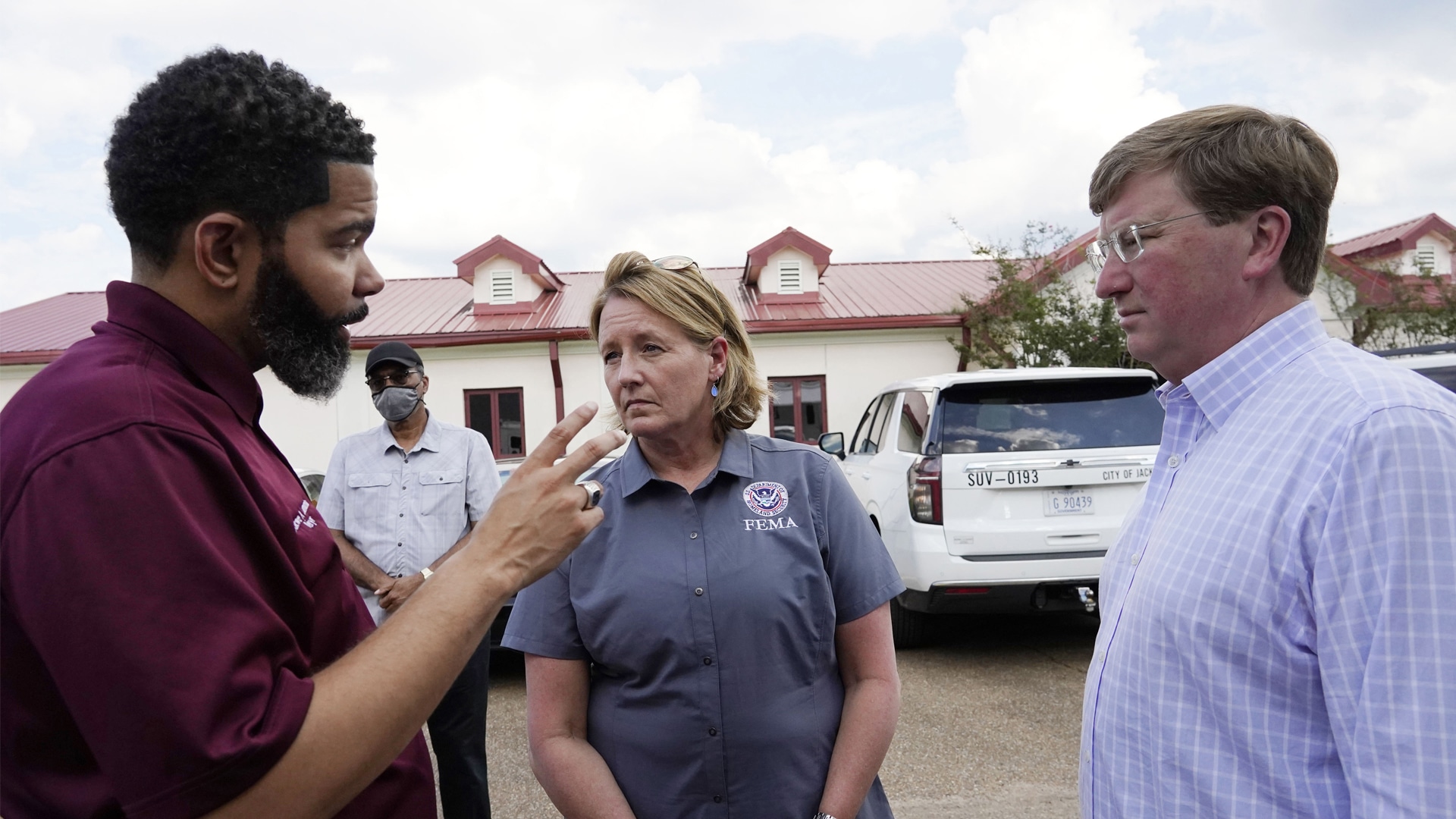
2021
A storm in February leaves Jackson residents with no drinking water for a month.
On March 3, Jackson Mayor Chokwe A. Lumumba writes to Reeves, the governor, outlining the city’s urgent need for $47 million for immediate repairs and improvements.
In May, Mississippi receives the first half of $1.8 billion from the American Rescue Plan Act for pandemic-related expenses and for water, sewer and broadband, but a new state law requires that federal assistance funds be appropriated by the state Legislature. No special session is called, and the funds sit idle until legislators meet again in 2022.
2022
In April, the state Legislature votes to allow cities such as Jackson to apply for funding for water and sewer projects with a one-to-one match using their own direct ARPA funds, while smaller municipalities receiving less than $1 million in ARPA funds can request a two-to-one match. The bill also singles out Jackson, requiring any funds awarded to Jackson be deposited into a state treasury fund.
On Aug. 29, floodwaters from the Ross Barnett Reservoir and Pearl River overwhelm Jackson’s primary water treatment plant, causing plant system failure and leaving 153,000 residents without potable drinking water and/or water pressure to flush toilets.
On Aug. 30, President Biden declares a 90-day state of emergency, authorizing federal funds to cover 75% of all costs related to the emergency.
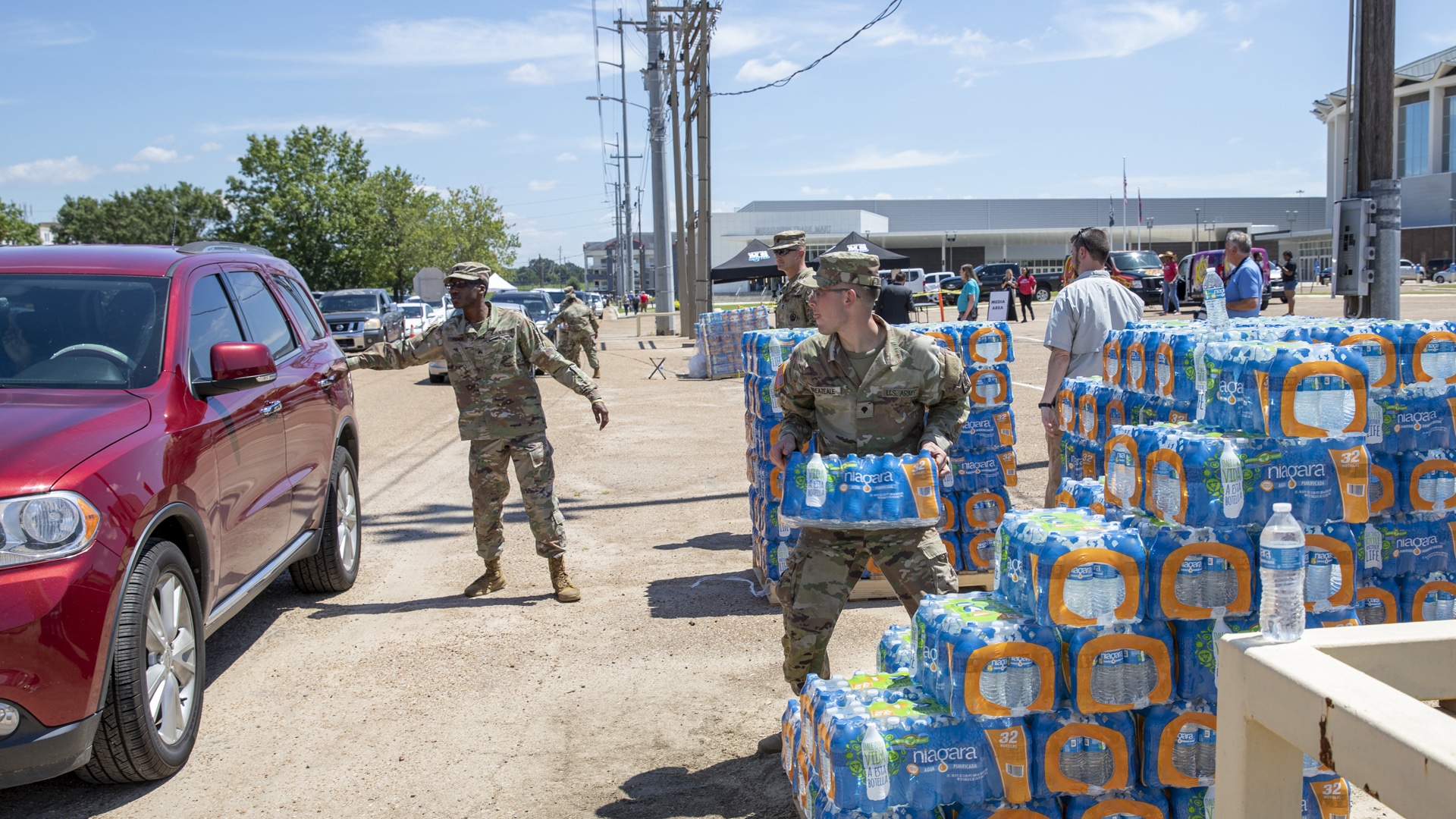
On Nov. 4, the Mississippi Department of Environmental Quality awards Jackson $35.6 million, which the city matches for a total of $71 million. The funds awarded to Jackson (and only Jackson) will sit in a Capital City Water/ Sewage Projects Fund until the state approves disbursement.
On Nov. 29, the U.S. Department of Justice files a complaint against Jackson alleging failure to comply with the Safe Drinking Water Act. A settlement agreement appoints Edward “Ted” Henifin as interim third-party manager.
2023
Still, few major improvements have been made. In May, Henifin says Jackson doesn’t have the money to pay costs until more federal funds arrive. The available funds can’t cover operations, maintenance or repairs.
On May 2, the SPLC files a complaint with the U.S. Department of the Treasury Office of Civil Rights and Equal Employment Opportunity regarding discrimination in the allocation and disbursement of millions of federal dollars Mississippi received from the American Rescue Plan Act. The majority-Black population of Jackson has been in dire need of improvements to the city’s water infrastructure for decades, but the city is unable to access federal relief funds because of obstacles set up by the Mississippi Legislature.
Sources: Mississippi Rapid Response Coalition, SPLC independent research
Photo at top: Illustration by SPLC


